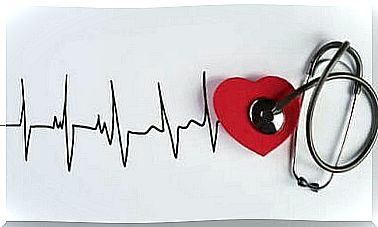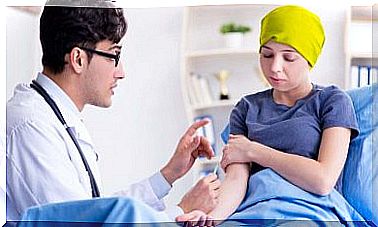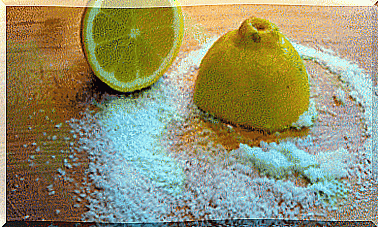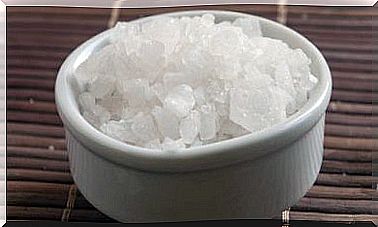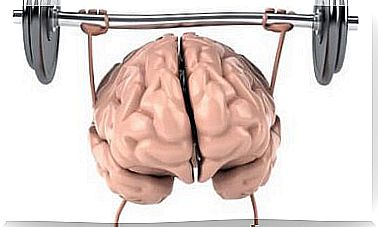What Is Post-vacation Syndrome?
The post-vacation syndrome, far from being able to be considered as a depression strictly speaking, designates a set of symptoms that people can suffer from after a period of rest or vacation.

Post-vacation syndrome brings together a set of emotions that people show after returning from vacation – or after a long time without work. This occurs during the return to work and the resumption of responsibilities.
This emotional disturbance is characterized by the appearance of apathy, sadness and fatigue, both physical and psychological. This is why we sometimes speak of “post-vacation depression”. Have you ever experienced this problem? We tell you all about this syndrome in the rest of this article.
Is Post-Vacation Syndrome a Disorder?
None of the psychiatry or psychology textbooks – such as DSM-5 or CIE-11 – discuss post-vacation syndrome. It is not considered a type of depression. However, this does not detract from the fact that this syndrome can be a source of discomfort for people returning from vacation or a period of rest.
Post-vacation syndrome is therefore not considered a psychological disorder but rather a temporary disruption. The person has to adjust to their daily tasks again after a vacation period.
According to Drs Herrero and Esquirol (2016), the scientific community has not found a consensus on post-vacation syndrome. They thus consider that it is “due in large part to the fact that work is considered a negative activity, obligatory and which obliges to make sacrifices”.
They add that if in a different society, work was seen as a place to stimulate creativity and personal development, post-vacation syndrome would not exist. Going back to something you don’t like after a period of rest is, and always has been, problematic.

Adaptation, the main problem
Professor Michael Baigent assures us that the main problem with post-vacation syndrome is adaptation. That’s why he says it’s sort of normal to be sad, demotivated, or nostalgic when you come home from summer vacation. He says that during the holidays, people do enjoyable activities away from their routine. So when we stop doing things we like and start doing things we don’t like as much, we feel nostalgia or some disturbance.
If it is only a problem of adaptation to the workstation and to different reinforcements than those received during the holidays, the post-holiday syndrome does not generally last more than 10 or 15 days, until the person manages to shape their thoughts, behaviors and emotions.
Symptoms of post-vacation syndrome
Since this disorder is not defined, the symptoms are not exhaustive or concrete. However, people who suffer from post-vacation stress can experience both physical and psychological symptoms.
Physical symptoms
- Tired
- Dizziness
- Lack of concentration
- Lack of attention
Other less common symptoms include:
- Tachycardia
- Headache
- Lack of appetite
- Insomnia
- Digestive issues
Emotional symptoms
- Apathy
- Melancholy
- Nostalgia
- Irritability
- Sadness
If the symptoms don’t go away in 2 weeks or less, we could talk about signs of acute stress, generalized anxiety, panic attacks, etc. depending on the person’s symptoms.
In this case, other variables, or environmental or material risk factors, which contributed to the development of this disorder were omitted. If this were to happen, it would be important to seek psychological help, since we are talking about a disorder that can affect the general functioning of the person.
Live by and for the holidays
Coach Shannah Kennedy, in an interview with Traveler magazine , believes that a possible cause of post-vacation syndrome is the approach that most people of European and American cultures have to life.
Indeed, she says most people live by and for the holidays, and expect them to be the big event of the year. They do not enjoy, experience or enjoy the period of work. It would seem that the holidays are the only thing that motivates and is worth living.
This way of looking at life makes people wait a year for a month’s vacation. This is why it is normal that after so much waiting, one feels nostalgic, sad and apathetic. In fact, we have to wait another year to be at rest again.
Ideally, therefore, to include small periods of rest and “holidays” during the year, whether on weekends or days off. Go to the mountains for a day, go to the beach if you live near the coast, prepare projects that do not require a year of waiting and which are just as fun.
Causes of post-vacation syndrome
Certainly, as we explained before, the post-vacation syndrome is due to the lack of adaptation when returning to work. However, there are certain variables that can motivate him. This lack of adaptation or difficulty adjusting to the routine after the holidays can be prompted by:
- Body image issues: During the holidays, people tend to eat more than usual, or even be more sedentary. This is why the body can change and it will not be the same before and after the holidays. This can lead to body image issues that make returning to the routine more complex
- Fatigue: Sleeping habits are also modified during the summer. Indeed, people have more nocturnal activities and sleep less. Accumulated fatigue can cause the feeling of lethargy and fatigue in the workplace
- Increased alcohol consumption: As mentioned before, people often abuse alcohol while on vacation. It may also have an influence on the person’s fatigue.
- Program too busy: during the summer, we often have the habit of making too many plans and not resting. Thus, we recommend that you leave room for boredom or contemplation.
Tips for overcoming post-vacation syndrome

Since very few cases of post-vacation stress require psychological intervention – and when it does, it is because of a defined disorder with distinct symptoms and characteristics, it is we who must regulate ourselves in order to adapt as quickly as possible to the routine.
Here are some common tips:
- Maintain good sleep hygiene, sleeping around 8 hours. No more no less
- Set new challenges spread throughout the year and not just focus on the next vacation
- Take care of yourself through diet and hydration: it would also be ideal to do some physical exercise, which can successfully change the mood after the holidays
- Consider a gradual return to work: do not start on the wheel hats from the start to facilitate adaptation
- Do not start work immediately after returning from vacation, but plan the return a few days before
- Be careful with alcohol and caffeine: While alcohol can worsen feelings of listlessness and longing, caffeine can do the same with feelings of stress and anxiety.
- Think about what work is, why we consider it a burden, consider it from another angle, and as far as possible, find a satisfying job that contributes to self-fulfillment
As we mentioned before, calm and patience are recommended to anyone who thinks they are suffering from post-vacation syndrome. Apathy and longing will go away in most cases naturally and in a few days.
Also, once you experience it, it will be easier to see things from a different perspective so that on the next vacation you can return to work rested and full of energy, without feeling apathy. , stress and anxiety.
